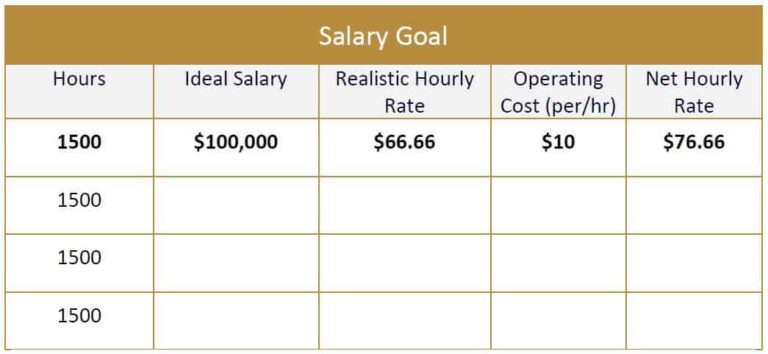Are you in the process of planning a special event and wondering, “How much should an event planner charge?” Pricing is a critical aspect to consider when hiring an event planner as it directly impacts your budget and the success of your event. Understanding the factors that influence an event planner’s pricing structure can help you make an informed decision. Factors such as the planner’s experience, the scale of the event, location, and services provided all play a significant role in determining the cost. In this blog, we will delve into the intricacies of event planning pricing to help you navigate this crucial decision-making process with confidence.
Understanding the Factors Affecting Event Planning Pricing
Event planning pricing can vary significantly based on several key factors that event planners need to consider when determining their charges. By understanding these factors, event planners can ensure they are pricing their services competitively while also accounting for the value they provide.
Client Budget and Expectations
One of the primary factors that influence event planning pricing is the client’s budget and their expectations for the event. Event planners need to assess the client’s financial constraints and the level of sophistication desired for the event to provide an accurate quote.
It’s essential to clearly communicate with the client to align on budget expectations and the scope of services included in the pricing package.
Event Size and Complexity
The size and complexity of an event play a significant role in determining the pricing structure. Larger events with intricate details and logistics involved will naturally require more time, effort, and resources, impacting the overall cost.
- Consider the number of attendees, venue size, and level of customization required when pricing event planning services.

Researching Market Rates for Event Planning Services
When it comes to determining how much an event planner should charge, it is essential to research the market rates in your area. By understanding the pricing trends and competitive landscape, you can set your rates competitively while ensuring profitability.
Evaluating Local Rates
Start by researching the rates charged by other event planners in your city or region. Look at both new entrants and established professionals to gauge the range of prices in the market.
- Compare pricing for different types of events, such as weddings, corporate functions, and social gatherings.
- Consider the services included in the packages offered by competitors.
Factors Influencing Pricing
Several factors can influence how much event planners charge for their services. These include:
- Experience: Seasoned event planners with a proven track record may command higher rates.
- Location: Rates can vary significantly depending on the region and local demand for event planning services.
- Services Offered: Pricing may differ based on the scope of services provided, such as full-service planning versus day-of coordination.

Calculating Costs and Profit Margins
When deciding how much an event planner should charge, it is essential to calculate costs accurately to determine the profit margin. Calculating costs involves considering all expenses incurred in organizing an event, such as venue rentals, decorations, catering, staffing, transportation, and marketing.
Determining Costs
Begin by listing all expenses associated with the event. Consider both direct costs (expenses directly related to the event) and indirect costs (overhead expenses). Direct costs may include venue fees, catering, entertainment, and decorations, while indirect costs encompass administrative expenses, marketing costs, and utilities.
Calculate the total sum of all expenses to get an accurate picture of how much it costs to deliver the event.
Calculating Profit Margin
To determine the profit margin, subtract the total costs from the revenue generated by the event. The profit margin is the percentage of revenue that represents profit after accounting for all expenses.
Profit Margin = ((Total Revenue – Total Costs) / Total Revenue) x 100
Setting Competitive Pricing Strategies
When it comes to determining how much should an event planner charge, setting competitive pricing strategies is crucial in the current market scenario. Event planners need to analyze various factors to ensure they offer pricing that attracts clients while also ensuring profitability.
Market Research and Analysis
Conduct thorough market research to understand the pricing trends in the event planning industry. Analyze competitor pricing, client expectations, and industry standards. Use this data to position your pricing competitively.
Understanding the market demand and aligning your pricing with client budgets can help in setting the right price point.
Value-Based Pricing
Consider implementing a value-based pricing strategy where the price is determined by the perceived value of your services by the clients. Highlight the unique selling points of your event planning services to justify premium pricing.
- Identify your unique offerings that set you apart from competitors.
- Communicate the benefits of your services effectively to potential clients.
- Price your services based on the value they provide to clients.
Communicating Price Points to Clients
When determining how much should an event planner charge, effectively communicating price points to clients is crucial. Transparency and clarity in pricing play a significant role in establishing trust with potential clients.
Itemized Quotations
Providing clients with itemized quotations can help them understand the breakdown of costs, making it easier for them to see the value they are getting for their money. This level of detail can build confidence in your pricing structure and justify the charges.
For example, venue rental, catering services, decorations, staff salaries, and administrative costs should be clearly outlined.
Client Consultation
Engaging in client consultations is essential to understanding their needs and expectations. By discussing the event details with the client, you can tailor your pricing strategy to meet their specific requirements, ensuring a customized and satisfactory experience.
During consultations, listening carefully to the client’s preferences and providing recommendations based on your expertise can guide them towards understanding the pricing structure.
Frequently Asked Questions
-
- How do event planners typically determine their pricing?
- Event planners usually consider factors such as the type and size of the event, the services required, their level of expertise, market rates, and any additional expenses when determining their pricing.
-
- What are some common pricing structures used by event planners?
- Event planners may charge a flat fee, hourly rate, percentage of the total event budget, or a combination of these methods based on the specific needs of the client and the complexity of the event.
-
- Is it common for event planners to offer customizable packages?
- Yes, many event planners offer customizable packages to cater to the varying needs and budgets of their clients. This allows clients to choose the services that best suit their event requirements.
-
- How can clients determine if the pricing quoted by an event planner is reasonable?
- Clients can compare quotes from multiple event planners, consider the services included in the pricing, review the planner’s experience and reputation, and assess the value proposition offered by each planner to determine the reasonableness of the pricing.
-
- Are there any hidden costs that clients should be aware of when hiring an event planner?
- It is important for clients to clarify what is included in the pricing provided by the event planner to avoid any surprises. Hidden costs may arise from additional services, overtime charges, venue fees, or last-minute changes to the event plan.
Final Thoughts
Deciding how much an event planner should charge is a crucial aspect that requires careful consideration. It should reflect the planner’s expertise, experience, services offered, and the client’s budget. Event planners should conduct market research, understand their value proposition, and set competitive yet reasonable rates. Clients, on the other hand, should prioritize quality over cost when selecting an event planner to ensure a successful and memorable event. Transparency in pricing and open communication can help bridge any gaps between expectations and reality. By finding the right balance, both event planners and clients can create a mutually beneficial partnership that leads to successful events and lasting relationships.



